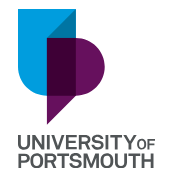About Humanistic Gestalt Counselling Diphe in University of Portsmouth
Do you want to learn how to help people change something in their lives by helping them explore their issues and feelings in a safe and confidential environment?
On this Humanistic Gestalt Counselling DipHE at Eastleigh College, you'll conduct 100-hours of supervised counselling, and develop your talking therapy skills and techniques in the classroom. You'll learn how to build relationships of mutual trust and respect to create a safe space for clients and facilitate their growth and change.
By the end of your diploma, you'll be prepared for a career in a counselling role. You'll also have a foundation to apply for accreditation from the British Association for Counselling and Psychotherapy (BACP).
Careers and opportunities
This gestalt counselling course gives you the opportunity to develop as a counselling professional. Graduating with a DipHE in Humanistic Gestalt Counselling puts you in the position to further your professional qualifications or take up work in a counselling position.
What can you do with a diploma in humanistic gestalt counselling?
After the course, areas you could go into include:
- the health sector
- education
- the voluntary sector
- private practice
- the police
- the prison service
You can also use your Humanistic Gestalt Counselling DipHE to get entry to higher-level professional qualifications such as:
- BACP Certificate of Proficiency – passing this makes you a registered members of the BACP (MBACP)
- BACP Accreditation – a professional counsellor qualification that requires another 350 hours of supervised practice
You can apply for accreditation from the British Association for Counselling and Psychotherapy (BACP) provided you meet their requirements including total client hours, supervision on placement, and sufficient records of continuing professional development (CPD).
What jobs can you do with a gestalt counselling diploma?
Roles you could take on include:
- workplace counsellor
- university counsellor
- drug and alcohol worker
- eating disorder counsellor
- learning support assistant
- mental health professional
You can get help, advice and support from our Careers and Employability service for up to 5 years after you leave the University as you advance in your career.
Academic qualification equivalents
- If you have an average of 75% or above in the 12 Standard (State Board) examinations or 70% in the Central Board, we'll consider you for admission onto an undergraduate course such as a Bachelor's degree. You must have studied relevant subjects and achieved strong grades.
English language requirements (one of the below):
- IELTS: A minimum of IELTS band 6.0, with no component below 5.5.
- TOEFL iBT: For most of our Bachelor's degrees, you need a score of 79 with a minimum of:18 in Reading 17 in Listening 20 in Speaking 17 in Writing Some courses, especially those with a high level of discussion and writing, require higher scores. You can see course-specific details on the individual course pages.
- PTE: 54 points, with a minimum of 51 in each component.
University of Portsmouth Highlights
| Type of Institution |
Public |
| Campus Setting |
Urban |
| Endowment |
9.9 Lakhs GBP |
| Number of Campuses |
2 - Langstone Campus and University Quarter |
| Percentage of International Students |
26% |
| Total number of Professors |
1,126 academic and Research staff |
| Student Satisfaction Rate |
Secured 88% Student Satisfaction |
| Graduate Job Rate |
97.5% |
| International fee |
£11,250 per annum |
| Type of Academic Programs |
UG, PG, Ph.D., research and Pathway Courses |
| Mode of Program |
Full time |
| Average Graduate Salary |
£13,900 - £15,900 a year |
University of Portsmouth Average Tuition Fees And Other Expenses
| Expenses |
Estimated cost in pounds |
| Undergraduate Fee |
£13,900 – £15,900 approx |
| Postgraduate Fee |
£13,900 – £15,900 approx |
| Accommodation |
£5000 approx |
| Cost of living |
£7000 - £10,000 approx |
| Placement year fee |
£2400 |
